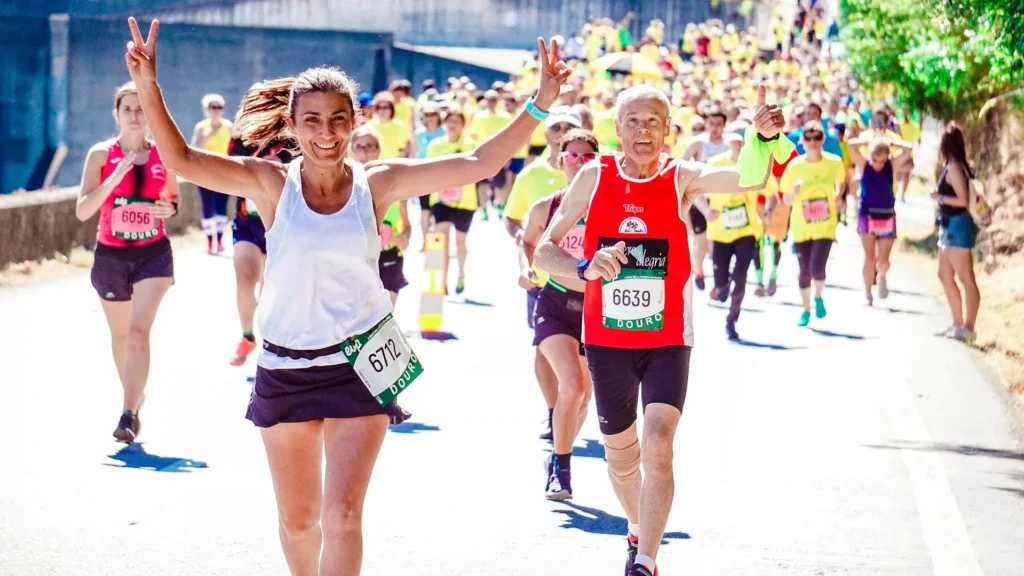Introduction
No one wants to die, yet death is inevitable. We are born, grow old, and die. There is nothing one can do about it, at least not for now. But we can do one thing. We can live our life and enjoy it while it lasts. We can, with some techniques, slow down our aging process, stay healthy, and enjoy our lives.
There are numerous ingredients that contribute to a full-of-life life and our health plays the most important role among them. Over time, because of the natural process, cells of our body start decaying causing aging. Aging is a biological process that involves the gradual deterioration of an organism. It affects our physical, cognitive, and physiological functions over time. It is a complex and multidimensional phenomenon that is influenced by several factors like genetic, environmental, and lifestyle. Each of these factors has its unique effect on the aging process and contributes to longevity and health.
Longevity refers to the length of an individual’s life. Although no one can guarantee the lifespan of any individual, there are steps we can take to slow down the aging process and ensure the full functionality of our body while we are alive. So, the steps we are going to talk about are not to assure you 100 years of life but their purpose is to promote a healthy life for you so you can fully enjoy your life.
Table of Contents
Why do we age?
Before talking about those measures, we need to understand what the experts in the field have theorized about the aging process. What do they think contributes to the aging process and which factor is the most influential? Several theories presented by theorists and biologists attempt to explain the mechanisms behind aging, and these theories often intersect and complement each other.
Our body is made of different types of cells which are the basic building blocks of every organ. These cells make copies of themselves and perish after a certain period. The aging starts with the weakening of these cells. The following theories talk about which part of the cell is the cause of aging. Now Let us look at some theories on the topic. A few of these theories are technical and might be boring for readers, which is why we have not discussed them in detail. If you are interested in learning more, we have provided links for further reading.
Theories of Aging
1. Genetic Theories
These theories suggest that aging is influenced by genetic factors and consider genetics the most active and influential factor in the aging process. According to this theory, the accumulation of genetic evolution and changes over time contribute to the breakdown of cellular processes and the eventual decline of organ function. Hence, genetic accumulation and evaluation, which are beyond our control are the main reasons for how fast one ages. For further reading.
2. Cellular Senescence
Cellular senescence refers to the phenomenon where cells lose their ability to divide and function properly. Senescent cells can accumulate in tissues and contribute to age-related diseases and overall aging. For further reading.
3. Telomere Shortening
Telomeres are protective caps at the ends of chromosomes that shorten with each cell division. Eventually, telomere shortening can lead to cellular dysfunction and contribute to the aging process. For further reading,
4. Mitochondrial Dysfunction
Mitochondria are the powerhouses of the cell, producing energy through a process called oxidative phosphorylation. Over time, mitochondrial DNA damage and oxidative stress can lead to reduced energy production and cellular dysfunction. For further reading.
5. Free Radical and Oxidative Stress Theory
This theory suggests that accumulated damage caused by free radicals and oxidative stress can lead to cellular and tissue dysfunction, contributing to aging. For more details.
6. Caloric Restriction and Hormesis
Some studies have shown that reducing calorie intake can extend the lifespan of various organisms. This may be due to a hormetic response, where mild stressors like caloric restriction trigger cellular repair mechanisms that promote longevity. For more details.
7. Inflammation
Chronic inflammation is associated with many age-related diseases. The “inflammaging” theory suggests that the gradual accumulation of inflammation over time contributes to the aging process. Read here for more details.
8. Epigenetic Changes
Epigenetic modifications, which regulate gene expression without altering the DNA sequence, play a role in aging. Changes in epigenetic markers can affect how genes are turned on or off, influencing cellular function. For detailed information https://www.frontiersin.org/articles/10.3389/fcell.2022.985274/full
Can we slow down the aging process?
Taking these theories into consideration, the question emerges as is there anything we can do to stop or even slow down this process? Most of the theories talk about the physical properties of a cell and its capabilities, whereas the last theory mainly focuses on the effects of the external environment on a cell and our body consequently.
This theory provides us an opportunity for a common person to take action to manipulate the cell decay process. Researchers are actively investigating ways to promote healthy aging and extend lifespan. Some approaches being explored include:-
1. Healthy Lifestyle
A balanced diet, regular physical activity, stress management, and adequate sleep can contribute to healthy aging and longevity.
2. Medical Interventions
Some drugs and compounds, such as rapamycin and metformin, are being studied for their potential to extend lifespan by targeting specific aging-related mechanisms.
3. Genetic Manipulation
Genetic engineering and interventions to modify specific genes associated with aging and longevity are being explored in animal models.
4. Senolytics
These are drugs that target and eliminate senescent cells, which can contribute to age-related diseases. Clearing these cells may improve health and extend lifespan.
5. Stem Cell Therapies
Stem cells have the potential to repair and regenerate damaged tissues, and their use in rejuvenation therapies is an area of ongoing research.
It’s important to keep in mind that while scientific advancements are being made, there is currently no proven method to significantly extend the human lifespan beyond what is considered natural. Additionally, ethical considerations, safety concerns, and the complexities of aging make this field of research very challenging. Moreover, most of these interventions are also not available for everyone. So, here we will talk about what a common person can do in this situation.
It is important that not only we should change our lifestyle to accommodate these changes but should also teach our children to act upon these from an early age. It may be hard for us to modify our lifestyle if we are not so young, our children can adapt to it easily and benefit from this from an early age.
How to remain healthy and Slow down aging?
Staying healthy, preventing chronic diseases, and living a long and fulfilling life as we age requires a combination of lifestyle choices, regular medical checkups, and a positive mindset. Here are some key strategies we need to act upon.
1. Balanced Diet and Aging
Our body is made of what we consume on a regular basis. That is why we should consume a variety of nutrient-rich foods, including fruits, vegetables, whole grains, lean proteins, and healthy fats. Processed foods are easy to prepare and tasty to eat, but we need to avoid from these or at least limit their usage including sugary snacks, and excessive sodium intake.
2. Physical Activity and Aging
Engage in regular exercise that includes a mix of aerobic activities (e.g., walking, swimming, cycling) and strength training. Calisthenics is an exercise type that can be done at home without any equipment. You can find a variety of exercises online that suit your health condition and environment.
Aim for at least 150 minutes of moderate-intensity aerobic activity or 75 minutes of vigorous-intensity activity per week, along with muscle-strengthening exercises on two or more days.
3. Mental Health and Aging
Engage in activities that stimulate your mind, such as reading, puzzles, learning new skills, and social interactions. Practice stress reduction techniques like meditation, deep breathing, and mindfulness.
4. Get Regular Checkups
Schedule routine medical checkups and screenings to detect and manage health conditions early. Follow your doctor’s recommendations for vaccinations, screenings, and preventive care. Stay cautious of your body condition and responses, especially during exercise. Consult a doctor timely if you feel any unusual symptoms.
5. Healthy Weight and Aging
Avoid crash diets and focus on sustainable, long-term changes to your eating habits. Aim for a healthy weight range by balancing caloric intake with physical activity. Consult a doctor in case of sudden weight loss, weight gain, or appetite loss.
6. Limit Harmful Habits
Avoid smoking and limit alcohol consumption to moderate levels, if not at all. Minimize exposure to environmental toxins and pollutants. Wear a mask or protective gear if you need to go to a toxic environment. Keep in mind that your body is your best companion and you need to take the best care of it at any cost.
7. Stay Socially Engaged
Spend time with loved ones and nurture meaningful relationships. Maintain strong social connections with friends, family, and community groups. It helps you lower anxiety and stress which are the worst enemies of our health. Engage in activities that bring you joy and foster a sense of purpose.
8. Prioritize Sleep
Create a bedtime routine that promotes relaxation and good sleep hygiene. Aim for 7 to 9 hours of quality sleep each night. If you struggle to go to sleep at night, try to wake early in the morning and don’t take a nap during the day. It will help you get to sleep faster. Reading a book or listening to music also might be helpful.
9. Practice Positive Thinking
Surround yourself with supportive and positive people. This will help you to cultivate a positive attitude and focus on gratitude, resilience, and personal growth.
10. Stay Hydrated
Drink enough water throughout the day to support bodily functions and overall health. We might not feel thirsty during winter or when are too busy at work. Try to keep drinking water within your reach at your workplace and drink some water from time to time even when you don’t feel thirsty.
11. Manage Chronic Conditions
If you have existing health conditions, work closely with your healthcare provider to manage and control them effectively. There are certain types of diseases and health conditions that can only be managed by changing your lifestyle. We need to compromise on a few things to stay healthy. Make required changes in your daily routine in consultation with your doctor.
12. Engage in Lifelong Learning
Life is not something to be accomplished but it is to be experienced. Embrace new experiences and hobbies to keep life interesting and fulfilling. Continue to learn and explore new things to keep your mind active and engaged. Learning new things makes us relevant to the rapidly changing world. Moreover, new accomplishments give us a reason to feel good and have a positive effect on our overall health.
13. Volunteer and Give Back
Engaging in volunteer work or helping others can provide a sense of purpose and fulfillment. Helping others is found to be an effective cure for stress. Being concerned about the issues of other people lowers the perception of the intensity of our own problems resulting in a positive mode.
Final Words
Remember that there is no one-size-fits-all approach to aging well. It’s important to tailor these strategies to your individual needs, preferences, and circumstances. Consult with healthcare professionals for personalized advice and guidance on maintaining your health and well-being as you age.


